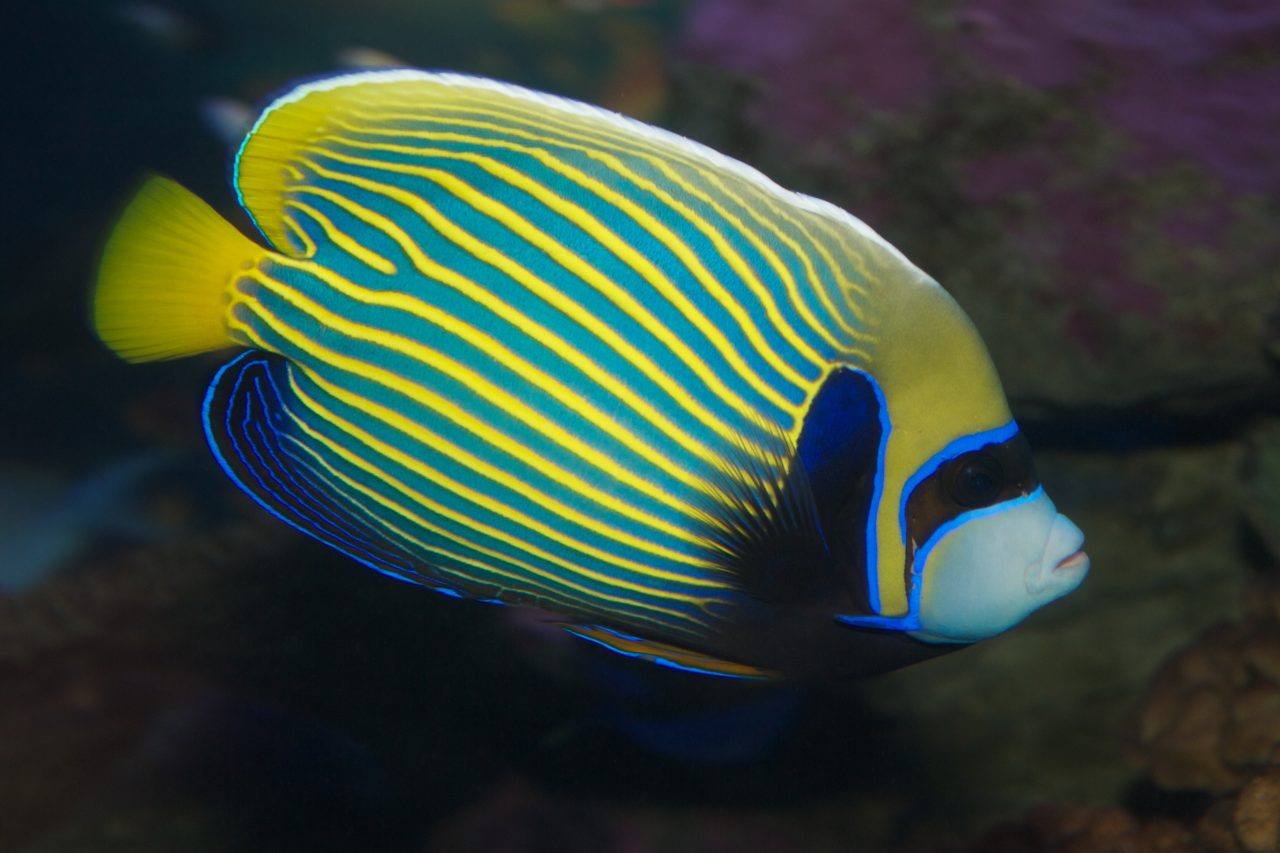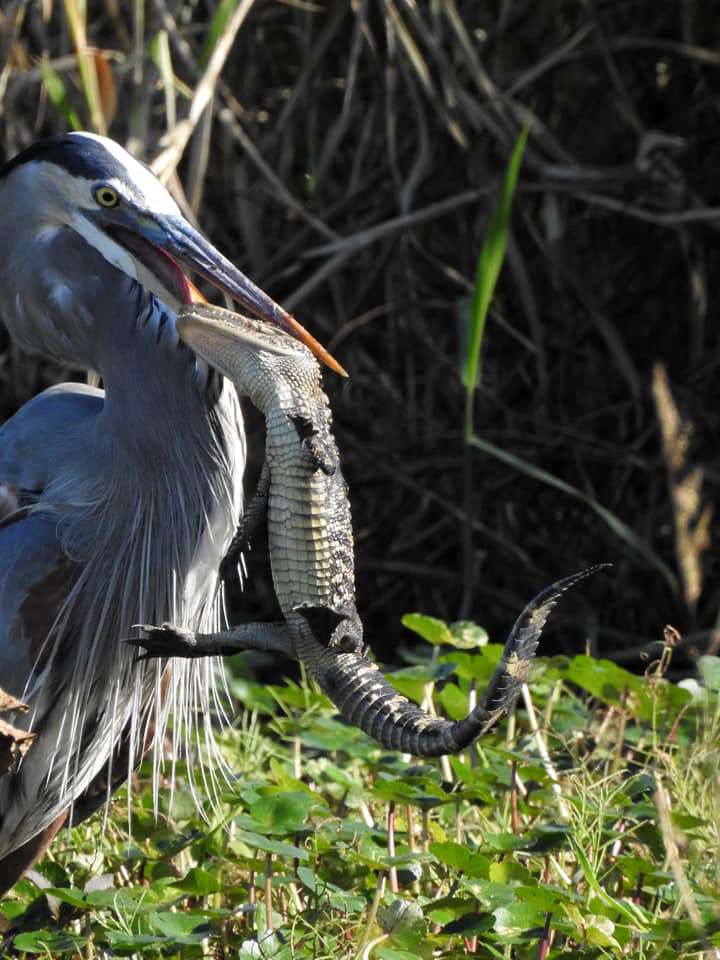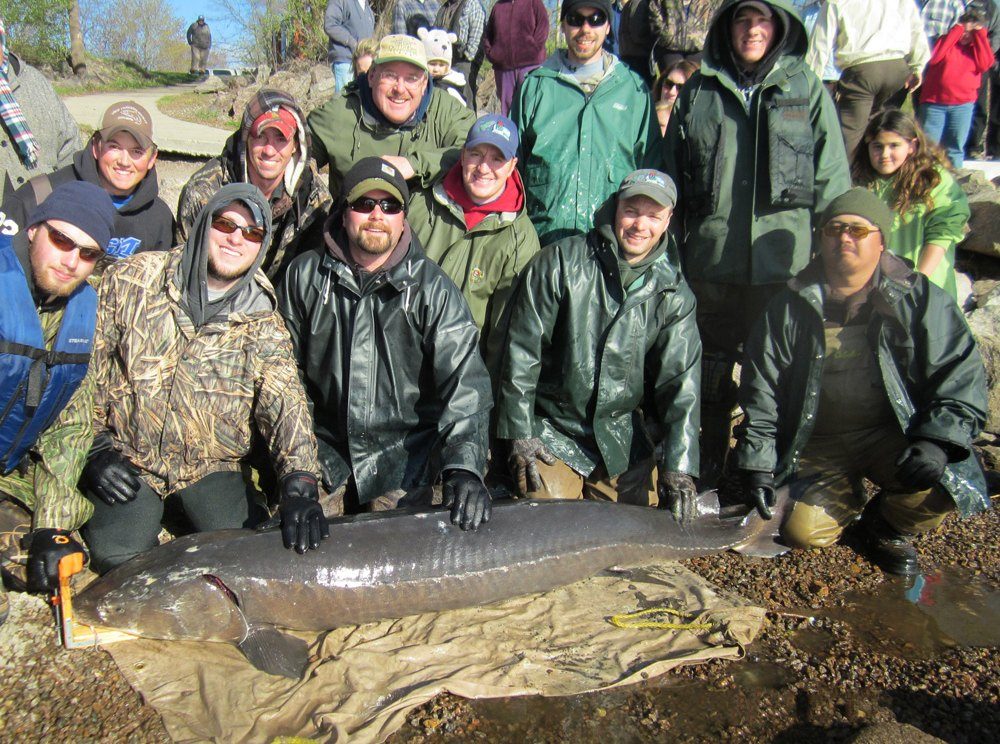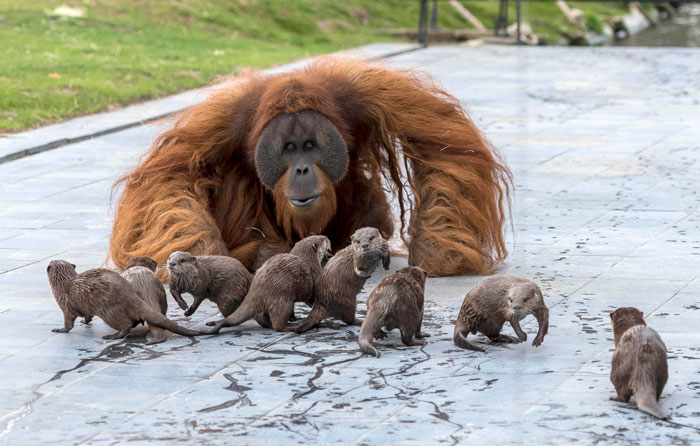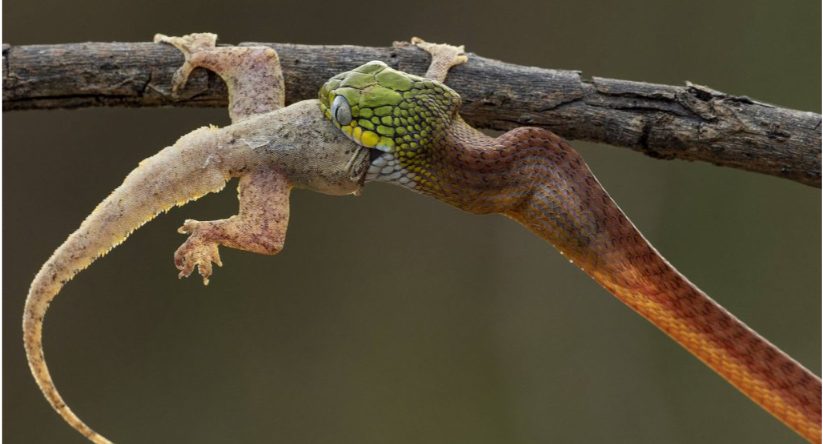It is not known how the animal got there. Experts explained that pumas are good swimmers and it will hopefully return to the mainland.

The adult puma was photographed and filmed on an iceberg in Los Glaciares National Park, in Santa Croce, by tourists aboard the María Turquesa boat on Lake Argentino in Argentina’s Patagonia region.
While observing the impressive glaciers of the protected area, tourists spotted a large animal on an iceberg floating in the water. As the boat started to approached it, it turned out to be an adult puma.
The visitors were quite surprised by the scene, as the iceberg was right in the middle of Lake Argentino, several miles from shore. Nevertheless, before too long the people aboard the ship started to record the event with their cameras and cell phones and thus captured some amazing images that quickly spread around the Internet.
Inédito: apareció un puma en un glaciar de El Calafate 🧊.Turistas vieron a un puma sobre un iceberg que flotaba sobre el Lago Argentino, en el Parque Nacional Los Glaciares, El Calafate, Santa Cruz. .Los guías aseguraron que se trata de algo pocas veces visto en la zona. pic.twitter.com/N3g6OR3Mh4
— LOS ANDES (@LosAndesDiario) July 21, 2021
But how did the cougar get to the top of the iceberg? According to the local park rangers, it is common to see these animals in the water, although never on a glacier.
“The animal went up alone, certainly to rest when it crossed the body of water. There is a record of pumas swimming across stretches of Lake Argentino, which has depths that can exceed 80 meters.”
“From the Parks the animal will be monitored from a prudent distance so as not to stress it and if it is thrown into the water it will be followed. It must be remembered that this is a wild adult puma so it is very dangerous to try to climb it on top of a boat”, they explained.
They added that “icebergs move mainly due to the wind, so as long as the puma stays on top of the iceberg, it will be safe and the wind will help it get closer to the coast.” And, if there is not much wind and the sea is calmer, it will surely return to the water to return to land anyway.

Source
The puma (Puma concolor) is one of the largest felines in Argentina and has a wide geographical distribution, as it can be seen throughout the mountain range, and also in the mountainous areas of central Argentina and the coast.
Los Glaciares National Park, a protected area of 731,932 hectares of Patagonian steppe and forest, has the highest sightings of cougars in Argentina, according to data from the Biodiversity Information System of the National Parks Administration (SIB): the last 333 sightings of this feline were all recorded in the Santa Cruz area.
Source: 1, 2, 3, 4




